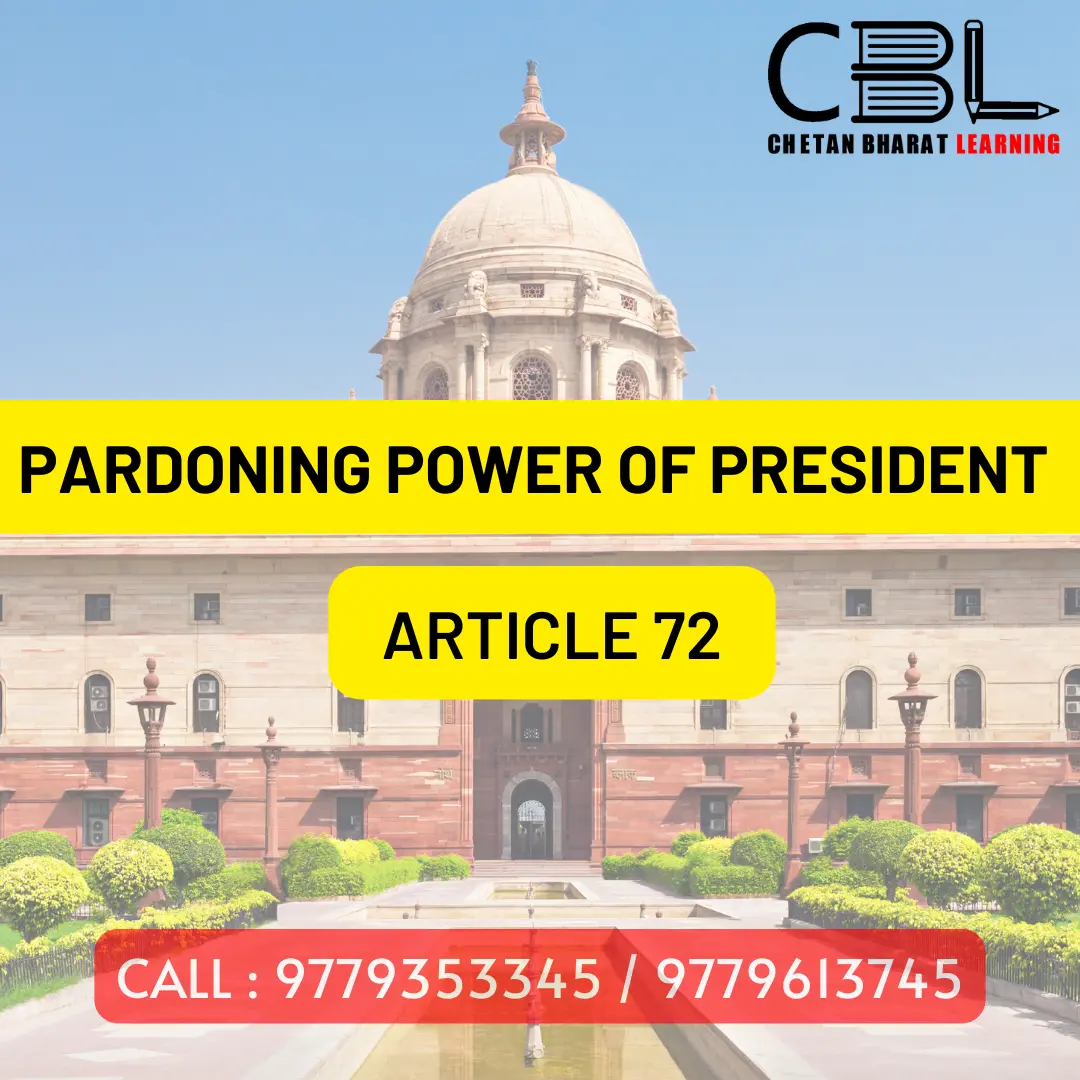Important for: UPSC and State PCS exams
Prelims: President, Powers of President
Mains: General Studies Paper 2
Why in news? President Droupadi Murmu has declined the mercy petition of Mohammed Arif, convicted for the 22 December, 2000 terrorist attack at the Red Fort, resulting in the deaths of three individuals, including two Army jawans.
Pardoning Power of the President (Article 72)- Mercy Petition
Article 72 empowers the President of India with the authority to grant pardons, reprieves, respites, or remissions of punishment. This executive power, independent of the judiciary, serves two main purposes: correcting judicial errors and offering leniency for excessively harsh sentences.
- A pardon completely erases the conviction and all associated penalties and disqualifications.
- Commutation replaces a harsher punishment with a milder one, for example, converting a death sentence to life imprisonment.
- Remission reduces the length of a sentence while keeping its nature intact, such as shortening a two-year rigorous imprisonment to one year.
- Respite grants a temporary reduction in sentence due to specific situations like pregnancy or physical disability.
- A reprieve temporarily postpones the execution of a sentence, especially capital punishment.
Comparison with Governor’s Power
● Article 161 grants similar powers to State Governors but excludes court martial cases and the ability to pardon death sentences, which can only be suspended, remitted, or commuted. In contrast, the President can pardon these sentences.
● Petitioners for mercy do not have the right to an oral hearing before the President.
● The President exercises this authority based on advice from the Union cabinet.
● The President is not required to provide reasons for the decision, and it typically is not subject to judicial review unless it is considered arbitrary, irrational, mala fide, or discriminatory.
Mains Practice Question “Discuss the significance and scope of the President’s pardoning power under Article 72 of the Indian Constitution. How does this power uphold the principles of justice and provide relief from harsh sentences?”





Leave a Reply
You must be logged in to post a comment.